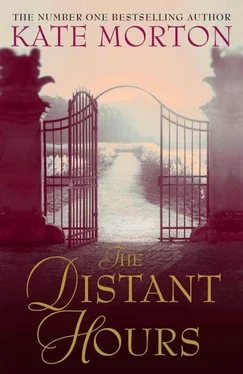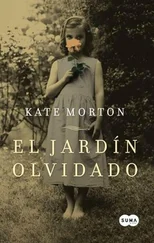I set my lamp at the back of the desk, far enough away so that I wouldn’t accidentally knock it, and slid the boxes from beneath the table, lifting them one by one onto the chair and rummaging until I found the journals spanning 1916 to 1920. Raymond Blythe had helpfully labelled each with the year, and it didn’t take long before I had 1917 spread out before me. I took my notebook from my bag and began jotting down anything I could think of that might be helpful for the article. Every so often I paused, just so that I could appreciate again that these were actually his journals, that this looping script, these ideas and sentiments, had originated with the great man himself.
Can I possibly convey here, with only words at my disposal, the incredible moment when I turned that fateful page and sensed a shift in the scrawl beneath my fingers? The handwriting was heavier, more purposeful, the script looked to have been written faster: lines and lines, filling each page, and when I bent closer, began to decipher the rough scrawl, I realized, with a thrill that started deep inside my heart, that this was the first draft of the Mud Man . Seventy-five years later, I was witnessing the birth of a classic.
Page after page I turned, scanning the text, devouring it, delighting in the small changes as I compared what was written with my memories of the published text. At length, I reached the end, and although I knew I shouldn’t, I laid my open palm across the final page, closed my eyes, and focused on the pen marks beneath my skin.
And that was when I felt it: the small ridge running down the side of the page, about an inch from the outer margin. Something had been tucked between the journal’s leather cover and its final page. I turned over, and there it was, a stiff piece of paper with scalloped serrations around the rim, the sort found in an expensive correspondence set. It had been folded in half.
Was there ever any chance I wasn’t going to open it? I doubt it. I didn’t have a very good track record with leaving letters unread, and the moment I saw it something began to caper beneath my skin. I felt eyes upon me, eyes in the dark, urging me to look inside.
It was neatly handwritten but faded, and I had to hold it close to the lamp to make out the words. It picked up mid-sentence, a single sheet in a longer letter:
… don’t need me to tell you that it’s a wonderful story. Never before has your writing taken the reader on such a vivid journey. The writing is rich and the tale itself captures, with an almost eerie prescience, Man’s eternal quest to shed the past and move beyond old, regrettable actions. The girl, Jane, is a particularly moving creature, her situation on the verge of adulthood perfectly rendered.
I couldn’t help noticing, however, as I read the manuscript, deep similarities to another story with which we’re both familiar. For that reason, and knowing you to be a fair and a kind man, I must beseech you, as much for your own sake as for the other, not to publish The True History of the Mud Man . You know as well as I do that it is not your story to tell. It is not too late to withdraw the manuscript. I fear that if you do not, the consequences will be of a most distressing
I turned it over but there was nothing further. I searched the notebook for the rest. Flicked back through the pages, even held it by the spine and shook it very carefully. Nothing.
But what could it mean? Which similarities? Which other story? What consequences? And who had seen fit to deliver such a warning?
A shuffling in the corridor. I sat stone-still, listening. Someone was coming. My heart hammered in my chest; the letter shook between my fingertips.
A split second of indecision, then I stuffed it inside my notebook and pressed the cover flat. I glanced over my shoulder in time to see Percy Blythe and her cane silhouetted in the doorway.
A Long Way to Fall
How I made it back to the farmhouse I cannot tell you; I don’t remember a second of the walk. Presumably I managed to say farewell to Saffy and Percy, then stumble back down the hill without doing myself bodily harm. I was in a daze, completely unaware of anything that took place between leaving the castle and arriving back at my room; I couldn’t stop thinking about the contents of the letter, the letter I had stolen. I needed to speak to someone immediately. If I were reading its contents correctly – and the wording wasn’t especially complicated – someone had accused Raymond Blythe of plagiarism. Who was this mystery person, and to which earlier story were they referring? Whoever it was had specified having read Raymond Blythe’s manuscript, which meant that they’d read the story and written the letter before the book was published in 1918; that fact narrowed the possibilities but was still no real help. I didn’t have a clue as to whom the manuscript might have been sent to. Well, I had a clue: I work in publishing, I knew it would have been read by editors, proofreaders, a few trusted friends. But those were general terms; I needed names, dates, specifics before I could ascertain how seriously I should take the letter’s claims. For if they were true, if Raymond Blythe had misappropriated the story of the Mud Man, the ramifications were enormous.
It was the sort of discovery scholars and historians – convalescent fathers in Barnes – dreamed of, a career-making scoop, yet all I felt was nauseated. I didn’t want it to be true, I longed for it to be some sort of joke, a misunderstanding even. My own past, my love of books and reading, was inextricably linked with Raymond Blythe’s Mud Man. To accept that it had never been his story, that he had pinched it from somewhere else, that it didn’t have its roots in the fertile soil of Milderhurst Castle, was not only the breaking apart of a literary legend, it was a brutal, personal blow.
Be that as it may, I had found the letter, and I was being paid to write about Raymond Blythe’s composition, specifically the origins, of the Mud Man . I couldn’t just ignore a claim of plagiarism because I didn’t like it. Particularly when it seemed to explain so much of Raymond Blythe’s reticence about discussing his inspiration.
I needed help, and I knew just the person to give it to me. Back at the farmhouse, I avoided Mrs Bird and made a bee-line for my room. I’d picked up the telephone receiver before I’d even sat down. My fingers tripped over themselves in their rush to dial Herbert’s number.
The phone rang out.
‘No!’ I grouched at the receiver. It stared back blankly.
I waited impatiently, then tried again, listened and listened to the faraway lonely ring. I chewed my nails and read my notes and tried again, with no more satisfaction. I even considered calling my dad, stopped only by fears of what the excitement might do to his heart. And that’s when my gaze fell upon Adam Gilbert’s name on the original interview transcript.
I dialled, I waited; no answer. I tried again.
The click of someone picking up. ‘Hello, Mrs Button speaking.’
I could have wept with joy. ‘This is Edith Burchill. I’m ringing to speak with Adam Gilbert.’
‘I’m sorry, Miss Burchill. Mr Gilbert’s gone up to London for a hospital appointment.’
‘Oh.’ A trembly deflation rather than a word.
‘He’s due back in the next day or two. I could leave a message and have him telephone you when he returns at the end of the week, if you’d like?’
‘No,’ I said; it was too late, I needed help now – and yet, it was better than nothing. ‘Yes, all right. Thank you. If you could let him know that it’s rather important. That I think I might have stumbled on something related to the mystery we were discussing recently.’
Читать дальше












